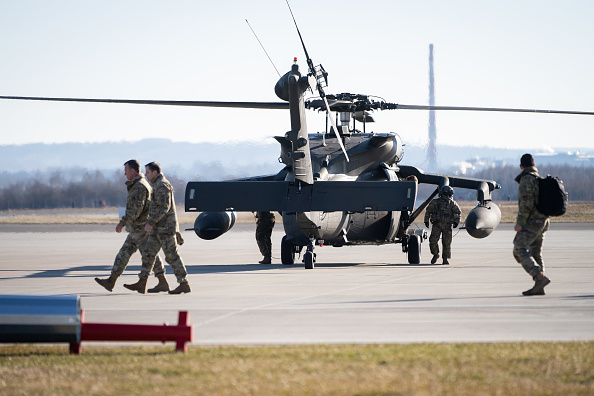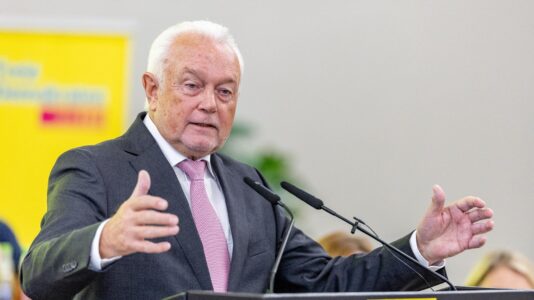A press release from U.S. Army Europe and Africa Command (USAREUR-AF) announced the planned relocation of U.S. military personnel and equipment from the Jasionka Airport near Rzeszów to other locations in Poland. Former Polish Prime Minister Mateusz Morawiecki sees this as a death knell for Polish-American relations, although it appears no pertinent actions have been taken.
“This transition is part of a broader strategy to optimize U.S. military operations, improving the level of support to Allies and partners while also enhancing efficiencies,” the USAREUR-AF statement reads, adding that this was done after “months of assessment and planning” and was “coordinated closely with Polish hosts and NATO Allies.”
Former Prime Minister Morawiecki told journalists, according to wPolityce, that the impact on Poland’s security will depend on where the soldiers will be transferred, calling the hub in Jasionka the epicenter from which all transports to Ukraine are carried out and thus hoping troops remain nearby.
However, he also said this is “bad news for Poland” and that it is necessary to “sound the alarm” because somehow this proves the Trump administration is doubting their relations with Poland.
“I am disappointed with the lack of action on the part of the Polish government,” the former prime minister told reporters.
According to Morawiecki, the statements of current Prime Minister Donald Tusk that the relocation was planned were also attempts to “save face,” even though the USAREUR-AF release specifically said this had been planned for months and involved the Polish government.
Morawiecki appears to have hoped to increase the number of American troops in Poland, and seems to think that this was supposed to happen thanks to the good relations built by President Andrzej Duda and PiS politicians with Donald Trump.
“Unfortunately, Mr. (Rafał) Trzaskowski and Mr. Tusk do not have these relations. The consequences of this were revealed today,” he said.
A report out of the Guardian counters Morawiecki’s stance, citing U.S. Army General Christopher Cavoli, speaking at the House Armed Services Committee. The general called Russia “a chronic threat,” adding that “in the coming years it is going to be a growing threat, one that is willing to achieve geopolitical goals and is actively waging a campaign of destabilisation across Europe and beyond.”
In light of this, he reiterated that he has always recommended keeping the U.S. force posture the same in the region, adding that “the legal permissions we have with nations hosting us, give us the ability to project power quickly in our interest on behalf of our US unilateral interests.”
The assistant secretary of defense for international security affairs, Katherine Thompson, did say at the same hearing that there is an ongoing “global force posture review,” although this would be normal for any military deployed around the world and facing various threats.






